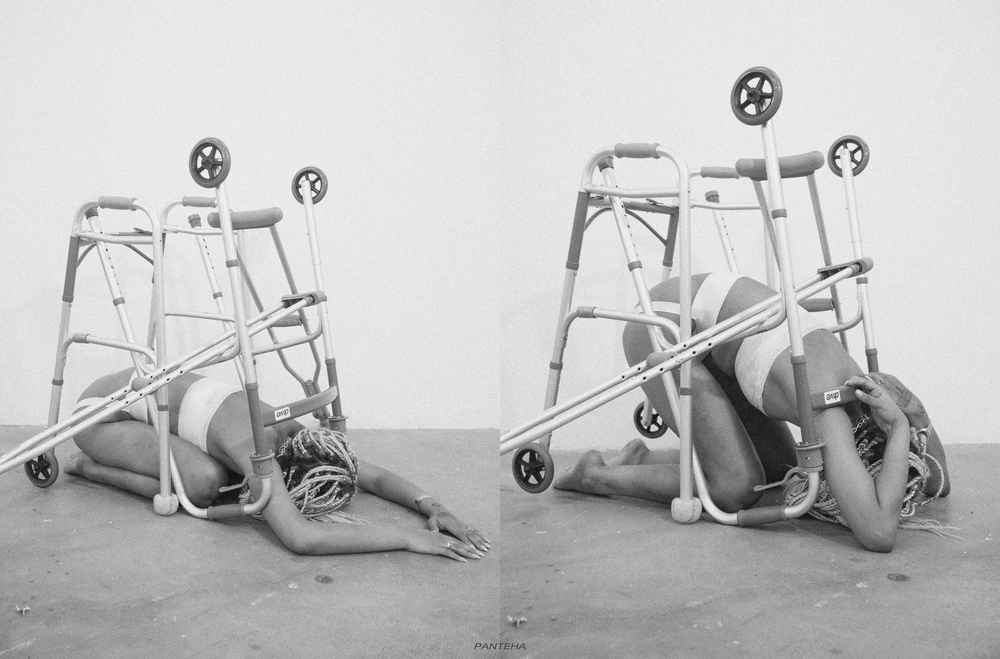
UNLEARN THE BODY
first performed on September 01, 2020
Human Resources
performed once in 2020
PANTEHA ABARESHI
Los Angeles
Panteha.com
UNLEARN THE BODY
PANTEHA ABARESHI
In this performance piece, the “body” is unlearnt in six movements while I maneuver the mobility aid that transforms into both vital corporeal appendages and alienating material. The dynamics of power surrounding the sick and disabled body are examined through slow, intentional gestures that unfold where the body is bound, contorted, and collapsed around the structures built from medical devices. A striking confrontation and embodiment of powerlessness takes place. “Unlearn the Body ‘’ captures my continuous struggle with the pressures of externalized and internalized ableism to perform able-bodiedness as well as the deterioration of my body that makes such performance ultimately painful and impossible. This piece also articulates the post-human and cyborg-futurist body of thought I employ in my work and my relationship to my illness and disability wherein the line between the “organic” and “inorganic” is blurred.
I am contending every day with the reality that all of my “best” parts are made from metal, plastic and stone: the “inorganic” prosthetics and medical devices implanted within me are vital to the function of my “organic” corporeal form. The naturalist prejudice within ableist society gives preference to the body which is devoid of “inorganic” material and unaided by medical devices; however, the notion of an “organic” body is an oxymoronic fallacy. This performance allows me to align the mobility aids with my own body, illustrating how the external and metal appendages are no more alien to me than my own decrepit and deteriorating bodily appendages. Furthermore, building the precarious structures from the mobility aids and tucking myself into them embodies the fraught navigation of my own illness, disability, and degeneration while simultaneously contending with the socioculturally integrated ableism that permits the desecration and marginalization of the sick and disabled body. In other words, by providing a glimpse into this never-ending conversation I must have with myself and my body, “Unlearn the Body” also addresses and refutes health politics that call for all sick and disabled individuals to be ashamed, constantly seek a “solution,” or work towards concealment for the comfort of able-bodied people.